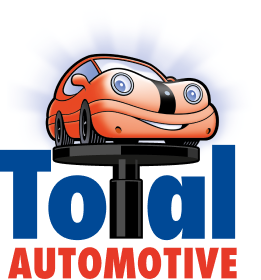When it comes to car safety, not many aspects are as important than ensuring that your car's advanced safety systems are properly calibrated. In Buffalo, where the severe winters and crowded streets pose specific challenges for motorists, knowing how to find the best car safety system calibration company can make all the difference. Whether you’ve recently experienced a crash, replaced your windshield, or simply want to make sure your car is operating at its best, choosing the right service is vital for your safety and the well-being of other drivers on the road.
So, how do you navigate the landscape of calibration services to make an educated decision? With Auto repair Buffalo , it is essential to know what to seek out in a trustworthy ADAS calibration service. From acknowledging the importance of certification to recognizing the warning signs of subpar service, being knowledgeable is your greatest defense against potential hazards. Let us explore the key qualities of trustworthy calibration companies in Buffalo, what to expect during the calibration process, and why proper calibration of your car’s safety system can significantly impact avoiding accidents and overall driving security.
Choosing the Best Calibration and Adjustment Service
While selecting a car vehicle safety system calibration company in Buffalo, it is crucial to focus on reliability and knowledge. Look for a company that has a strong standing in the community and favorable customer reviews. Such information can offer clues into their service quality and technical expertise. A reliable calibration company should also be transparent about their methods and prepared to address any inquiries you may have regarding their procedures and background.
One more important factor is certification. Ensure that the calibration company employs qualified ADAS technicians who understand the details of advanced driver-assistance technologies. This is vital not only for the protection of your vehicle but also for guaranteeing adherence with industry standards. A certified technician will know how to use original equipment manufacturer approved equipment properly, which is vital for precise calibration. Checking whether the provider follows the recommended protocols for calibrating can help you assess their commitment to excellence.

Finally, take into account the tools and instruments used by the calibrating company. State-of-the-art technology plays a major role in achieving spot-on adjustment. Find out about the types of equipment they use and whether they have the ability for both static and dynamic calibration methods. A company that invests in the most recent technology is more apt to provide excellent service, ensuring that your car's safety systems function correctly and well.
Comprehending the Calibration Procedure
The calibration process for Advanced Driver Assistance Systems (ADAS) is essential for ensuring the protection attributes of a car are working as intended. It involves configuring the sensors and imaging systems that identify barriers, maintain lane adherence, and implement self-braking systems. Car safety system calibration Buffalo is typically required following events such as windshield changes, accidents, or variations in vehicle height due to tire changes. Grasping this method helps car operators appreciate the significance of picking a qualified mechanic.
There are two key methods used for calibrating ADAS: fixed and adaptive. Fixed tuning requires using designated tools to configure the detectors in a controlled space, often requiring exact positioning and orientation. Adaptive adjustment, on the flip side, evaluates the system while the vehicle is in motion, allowing the sensors to adjust to real-life scenarios. Both aim to guarantee that the safety features are correctly calibrated to recognize hazards and react correctly, thereby reducing accident risks.
It is important to realize that appropriate tuning is not a isolated task but an continuous need. Factors such as wear and tear, changes in vehicle structure, or even program revisions can influence the effectiveness of these security mechanisms. Frequent evaluations and adjustments confirm that the vehicle’s safety systems remain consistent and comply with regulatory standards. By comprehending the adjustment process, vehicle owners can more thoroughly evaluate their options and promote necessary inspections, encouraging more secure.
The Importance of Proper Calibration
Proper calibration of your car’s safety systems is crucial for ensuring that state-of-the-art driver-assistance systems function optimally. When these systems, such as lane assist notifications or automatic emergency braking, are not calibrated correctly, they can lead to incorrect or delayed responses during critical driving situations. This misalignment can significantly escalate the risk of accidents, negating the very purpose of these safety features. Therefore, understanding the importance of calibration cannot be minimized, as it directly affects your safety and that of other road users.
In addition to enhancing safety, proper calibration also helps maintain the reliability and performance of your vehicle's safety features. Many contemporary vehicles rely on a network of sensors and cameras to operate effectively. If any of these components are not properly calibrated, it can cause malfunctions or unexpected behavior. Routine calibration assessments ensure that all systems are working properly and can often stop larger repairs in the future. It is a proactive approach that saves vehicle owners both time and costs in the long run.
Finally, selecting a trustworthy calibration provider is vital not only for your vehicle's safety but also for upholding the warranty and insurance requirements. Many manufacturers favor specific calibration procedures through approved providers. Using a company that adheres to these standards ensures that your vehicle remains in compliance and that you keep your protection under warranty and insurance policies. Thus, prioritizing proper calibration is not just an option but a requirement for any vehicle owner who prioritizes safety.
